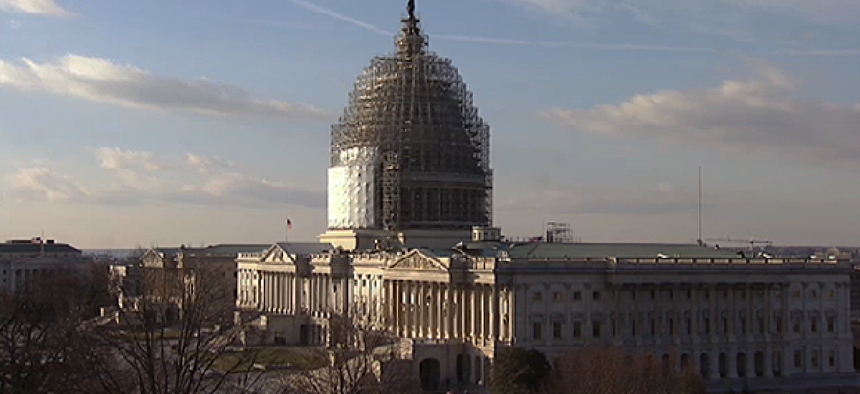Open data builds on the hill as Senate offers XML info


Connecting state and local government leaders
The U.S. Senate said it would make bills and other legislative information available for bulk XML download.
The U.S. Senate will be joining the open data movement when it said it would make bills and other legislative information available for bulk XML download. In making its announcement at the Legislative Branch Bulk Data Task Force meeting, the Senate said it will release machine-readable summary and bill information from the 113th Congress, which just gaveled out, and legislation from the upcoming 114th.
Although the House of Representatives already makes its legislative information machine accessible, the Clerk of the House announced that data on nominees, election statistics, and members (such as committee assignments, bioguide IDs, start date, preferred name, etc.) will also be available in machine-readable formats, according to a summary of the meeting by the Congressional Data Coalition.
Other updates reported by the CDC include:
- House Live, the on-demand video access to floor proceedings, has been upgraded so that all video is now in H.264 format.
- Website upgrades to the US Code will allow users to drill down to the subclause level by typing the information into their search engine.
- Work continues on copying information from THOMAS to Congress.gov.
- Testing the Amendment Impact Program, which aims to improve the accuracy of bill drafting by showing how amendment to a bill or other base document will affect that document.
The changes will make it easier for watchdog groups and private firms that use legislative data to make products for tracking Congress. Previously, Senate data had to be screen-scraped from multiple sources, which can be expensive and yield inaccurate data, Hudson Hollister, executive director of the Data Transparency Coalition and a former Capitol Hill staffer, told FCW.
Having House and Senate legislation available for bulk download means it's possible to build services that track legislative language by keyword or topic as bills move through Congress, and follow the process as bills get marked up in committee, combined with other bills, or amended on the floor.
Despite the recent move by the Senate, all of Congress isn't exactly speaking with one voice regarding data standards. In the summer of 2013, the Office of Law Revision Council, which maintains the U.S. Code as new legislation is signed into law, developed an XML information model called U.S. Legislative Markup (USLM) as a way of publishing laws and associated metadata in XML. This model could potentially be adapted for use across Congress for bills, summaries, reports and other information.
If the House and Senate adopted the same standard, Hollister points out, "then legislative drafters could use software tools that would automatically show the impact of what they're doing on the underlying law – automatically redlining proposed legislation into the U.S. Code."
A version of this article by Adam Mazmanian originally appeared on FCW, a sister site to GCN.

NEXT STORY: How will you manage big (and bigger) data in 2015?




